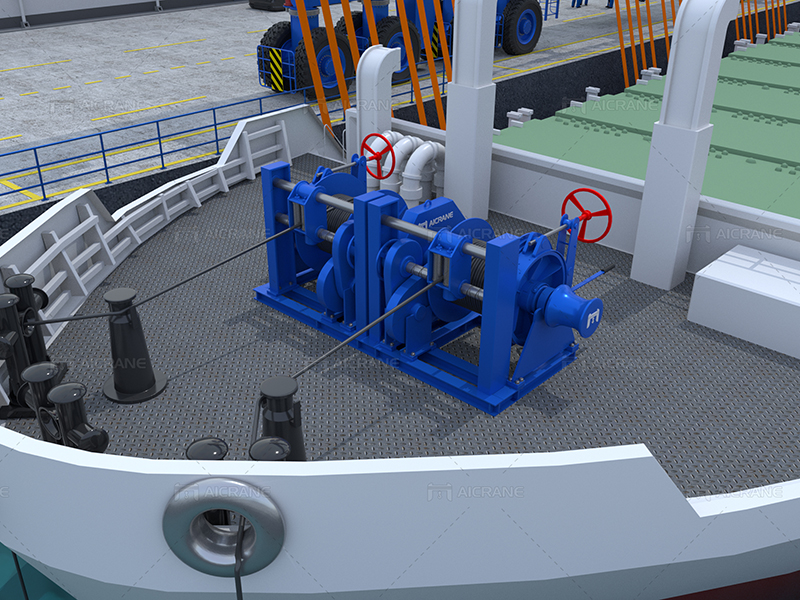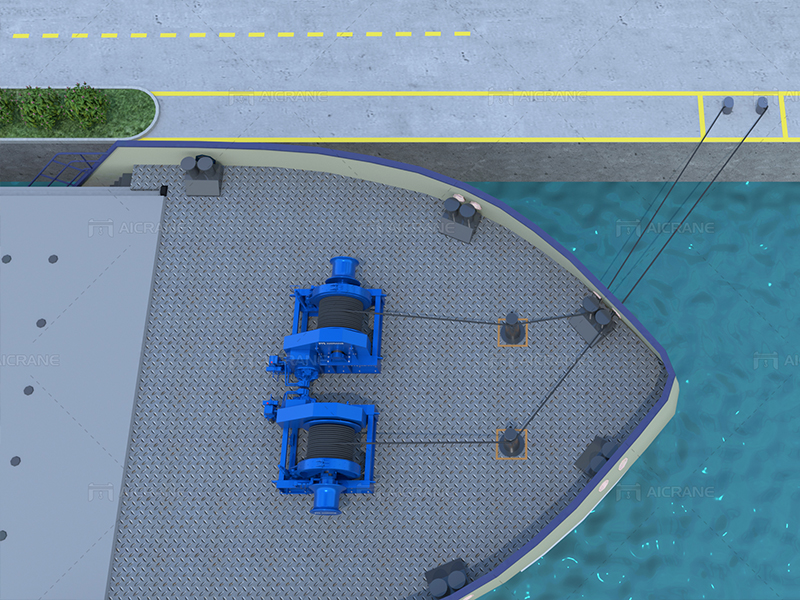Mooring winches play a critical role in the maritime industry, providing the necessary power to secure vessels to docks or other structures. Among the various types of mooring winches, hydraulic and electric systems stand out as popular choices, each with its unique advantages and considerations. In this article, we will delve into the differences between hydraulic and electric mooring winches, exploring their respective features, applications, and the factors that influence the choice between them.

Hydraulic Mooring Winches:
Hydraulic mooring winches are renowned for their robustness and high power capabilities. These winches operate by using hydraulic fluid to transmit power, creating a force that enables the winch to handle substantial loads efficiently. One of the primary advantages of hydraulic mooring winches is their ability to provide consistent power across a wide range of load conditions, making them suitable for heavy-duty applications.
Advantages of Hydraulic Mooring Winches:
High Power and Torque: Hydraulic systems are known for their ability to generate high power and torque, making hydraulic mooring winches ideal for handling large and heavy vessels.
Constant Force: Hydraulic winches can maintain a constant force even at low speeds, ensuring reliable and stable mooring operations.
Durability: Hydraulic systems are often more durable in harsh maritime environments, as they are less prone to damage from water, salt, and other corrosive elements.
Adaptability: Hydraulic systems can accommodate various load conditions, providing flexibility in different mooring scenarios.

Electric Mooring Winches:
Electric mooring winches, on the other hand, operate using electric power to drive the winching mechanism. These winches have gained popularity for their efficiency, ease of control, and lower maintenance requirements. Electric mooring winches are well-suited for applications where precise control and speed are essential.
Advantages of Electric Mooring Winches:
Precision and Control: Electric winches offer precise control over speed and force, making them suitable for situations where delicate maneuvers are required.
Lower Maintenance: Electric systems generally have fewer moving parts compared to hydraulic systems, resulting in lower maintenance requirements and reduced downtime.
Ease of Installation: Electric mooring winches are often easier to install and require less space, providing more flexibility in terms of placement on vessels.
Energy Efficiency: Electric systems can be more energy-efficient, especially when considering advancements in electric motor technology and power management.
Factors Influencing the Choice:
Application Requirements: The choice between hydraulic and electric mooring winches often depends on the specific requirements of the application. Heavy-duty applications may favor hydraulic systems, while situations requiring precise control may lean towards electric winches.
Space and Weight Constraints: Vessel design and available space play a crucial role in choosing between hydraulic and electric winches. Electric winches are generally more compact and lighter, making them suitable for vessels with space constraints.
Operational Environment: The maritime environment, including exposure to saltwater and harsh weather conditions, influences the choice between hydraulic and electric systems. Hydraulic systems may have an edge in durability, but electric systems are catching up with advancements in materials and design.
Cost Considerations: Initial costs and long-term operating expenses also factor into the decision-making process. While hydraulic systems may have higher upfront costs, electric systems might offer cost savings over the life of the mooring winch.
Conclusion:
In the dynamic world of maritime operations, the choice between hydraulic and electric mooring winches is not a one-size-fits-all decision. Both systems have their strengths and weaknesses, and the optimal choice depends on the specific needs of the vessel and its intended applications. As technology continues to advance, we can expect further innovations in both hydraulic and electric mooring winches, providing the maritime industry with even more options to navigate the seas of choice.